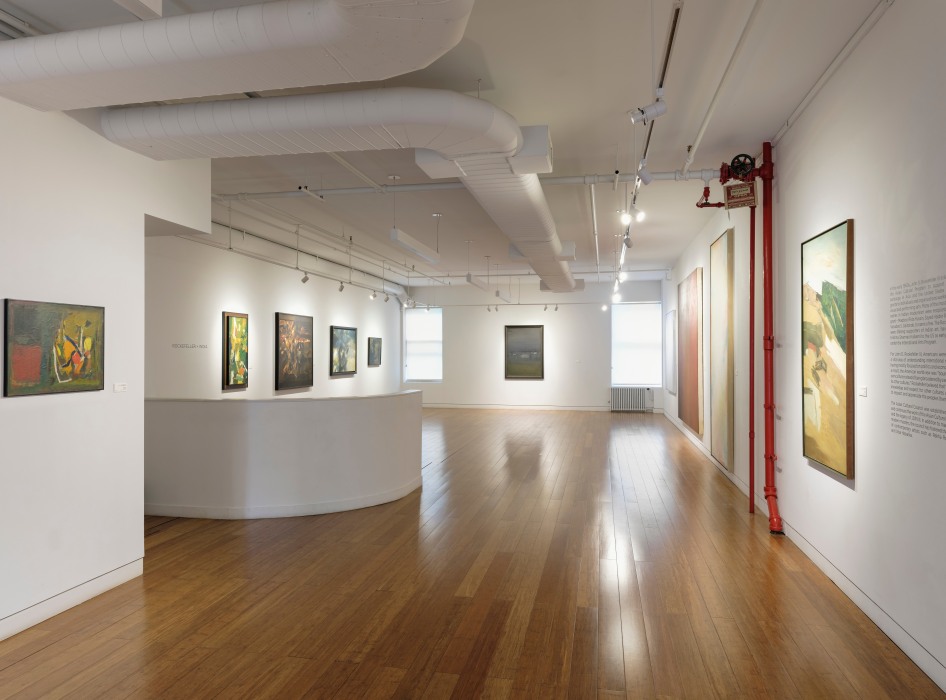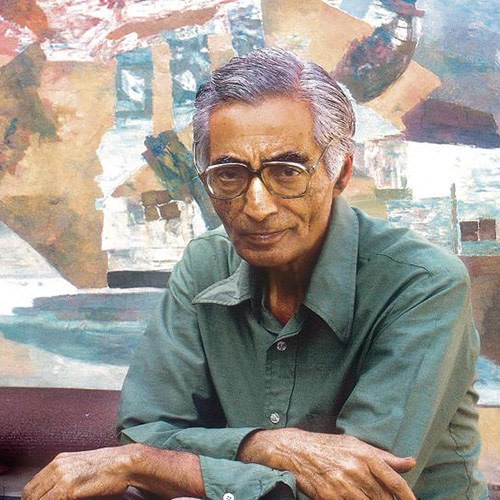

RAM KUMAR
Born 1924 in Simla, Himanchal Pradesh, India.
Died 2018 in New Delhi, India.
Ram Kumar's work was often challenging to place within the more simplistic narratives that developed around modern Indian art. Like several Indian and Pakistani artists who studied in Paris in the 1950s, Kumar returned from Europe with a semi-figurative style that drew on post-cubism. He eventually chose to abandon the figure entirely and work almost exclusively with the motifs of abstract cityscapes and landscapes, a move unique among his immediate contemporaries. By insisting on the abstract, Kumar demanded something that most of his peers did not; a private, contemplative viewing experience. Like their counterparts in Western abstract art – the work of Rothko and Hans Hoffman come to mind – Kumar's paintings are less about transcendence and more about the visual encounter between the viewer and the artwork in front of them. Thus, the evolution in Kumar's work that set him apart from his contemporaries can be understood as the embodiment of a break between picturing something and being it.
Born 1924, Simla, Himanchal Pradesh, India.
Ram Kumar's work, throughout his lifetime, has often been difficult to place within the more simplistic narratives that have developed around modern Indian art. Although Kumar, like a number of Indian and Pakistani artists who studied in Paris in the 1950s, returned from Europe with a semi-figurative style that drew on post-cubism, he eventually chose to abandon the figure entirely and began working almost exclusively with the motifs of the abstract cityscapes and landscapes, a move unique among his immediate contemporaries at the time. By insisting on the abstract, Kumar demands something that most of his contemporaries do not; a private, contemplative viewing experience. Like their counterparts in Western abstract art – the work of Rothko and Hans Hoffman come to mind – these works are less about transcendence and more about the visual encounter between the viewer and the painting in front of them. Thus, the evolution in Kumar’s work that continues to set him apart from his contemporaries can be understood as the embodiment of a break between depicting something (the individual) to articulating the possible response of that something; between picturing something and being it, if you like.
Ram Kumar studied painting in New Delhi and Paris. He is a vital part of first generation post-colonial Indian artists, a member of the fabled “Progressive Artist’s Group”, alongside F. N. Souza, S. H. Raza and M. F. Husain. Kumar has held solo and group exhibitions worldwide, including London, New York, France, Japan and throughout India.
The artist lives and works in New Delhi.